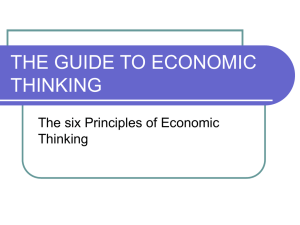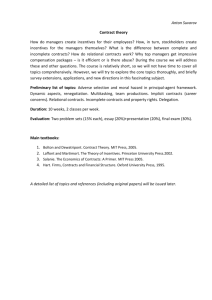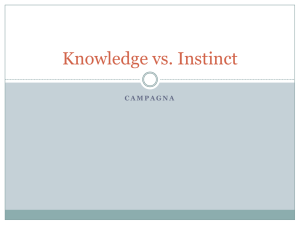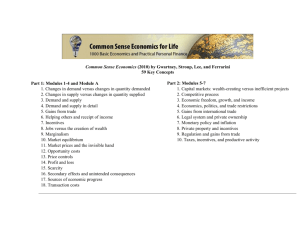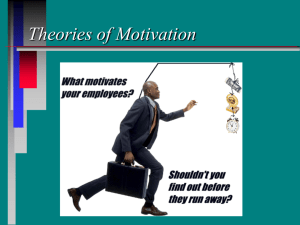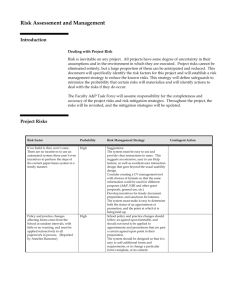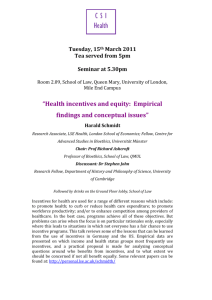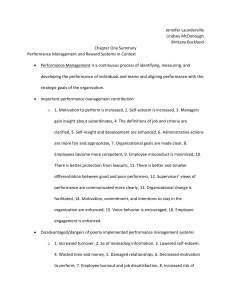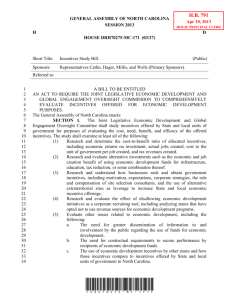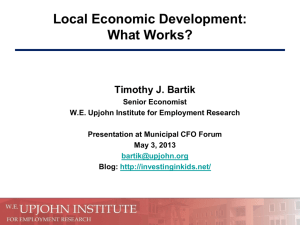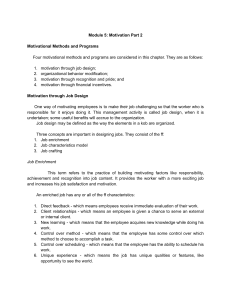Theories of Motivation worksheet (Answer Key).
advertisement
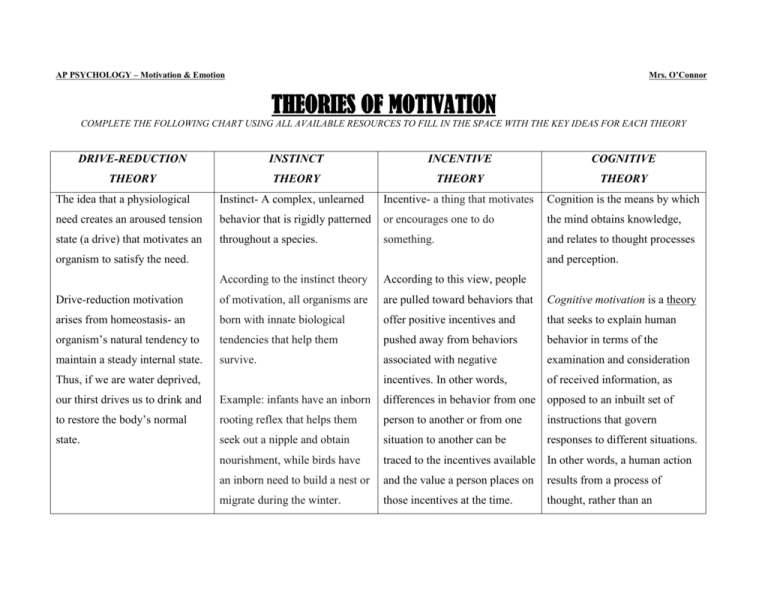
AP PSYCHOLOGY – Motivation & Emotion Mrs. O’Connor THEORIES OF MOTIVATION COMPLETE THE FOLLOWING CHART USING ALL AVAILABLE RESOURCES TO FILL IN THE SPACE WITH THE KEY IDEAS FOR EACH THEORY DRIVE-REDUCTION INSTINCT INCENTIVE COGNITIVE THEORY THEORY THEORY THEORY The idea that a physiological Instinct- A complex, unlearned Incentive- a thing that motivates Cognition is the means by which need creates an aroused tension behavior that is rigidly patterned or encourages one to do the mind obtains knowledge, state (a drive) that motivates an throughout a species. something. and relates to thought processes organism to satisfy the need. and perception. According to the instinct theory According to this view, people Drive-reduction motivation of motivation, all organisms are are pulled toward behaviors that Cognitive motivation is a theory arises from homeostasis- an born with innate biological offer positive incentives and that seeks to explain human organism’s natural tendency to tendencies that help them pushed away from behaviors behavior in terms of the maintain a steady internal state. survive. associated with negative examination and consideration incentives. In other words, of received information, as Thus, if we are water deprived, our thirst drives us to drink and Example: infants have an inborn differences in behavior from one opposed to an inbuilt set of to restore the body’s normal rooting reflex that helps them person to another or from one instructions that govern state. seek out a nipple and obtain situation to another can be responses to different situations. nourishment, while birds have traced to the incentives available In other words, a human action an inborn need to build a nest or and the value a person places on results from a process of migrate during the winter. those incentives at the time. thought, rather than an automated response based on preprogrammed rules.
